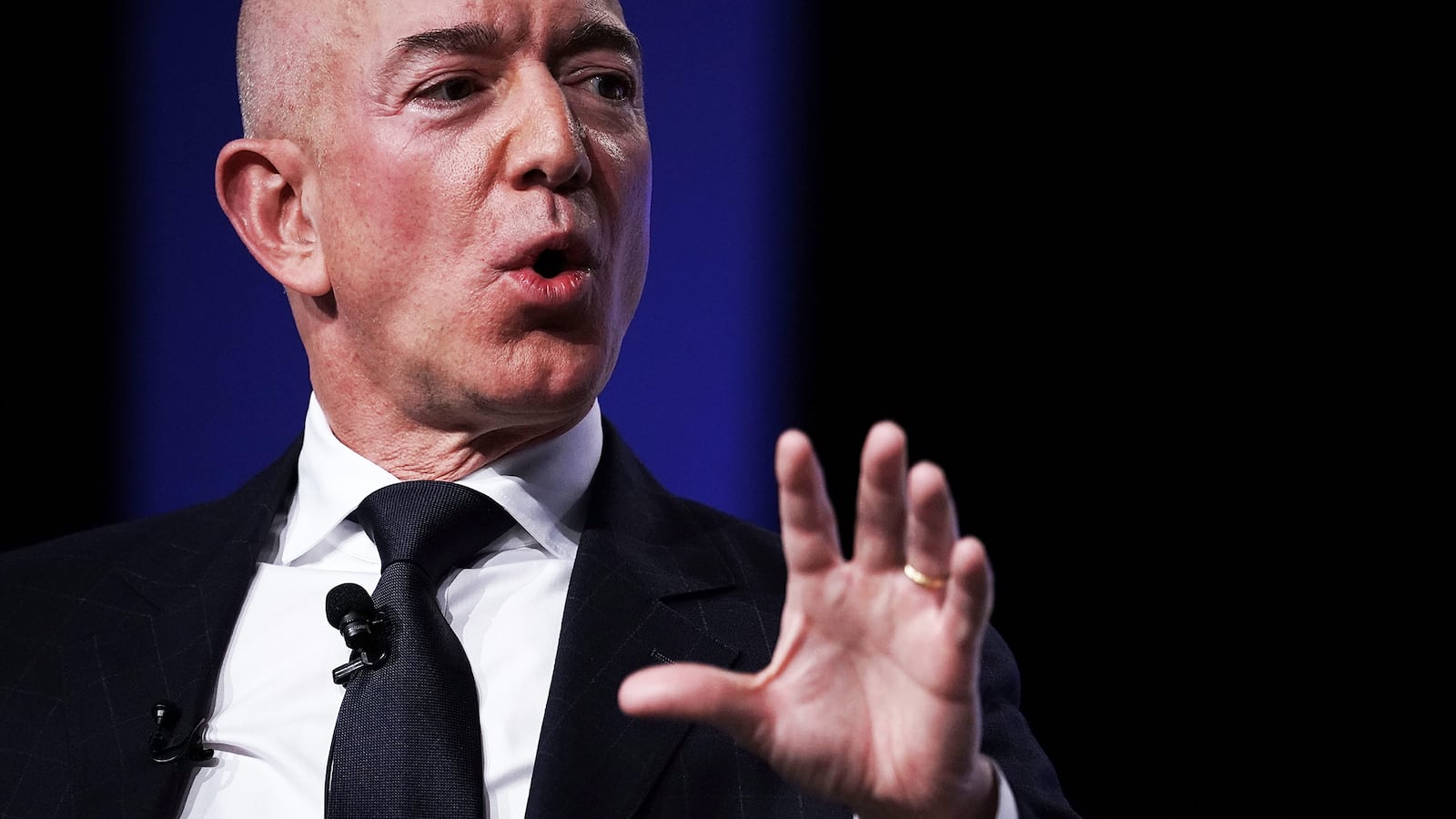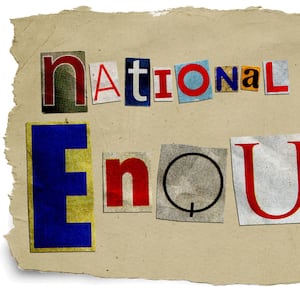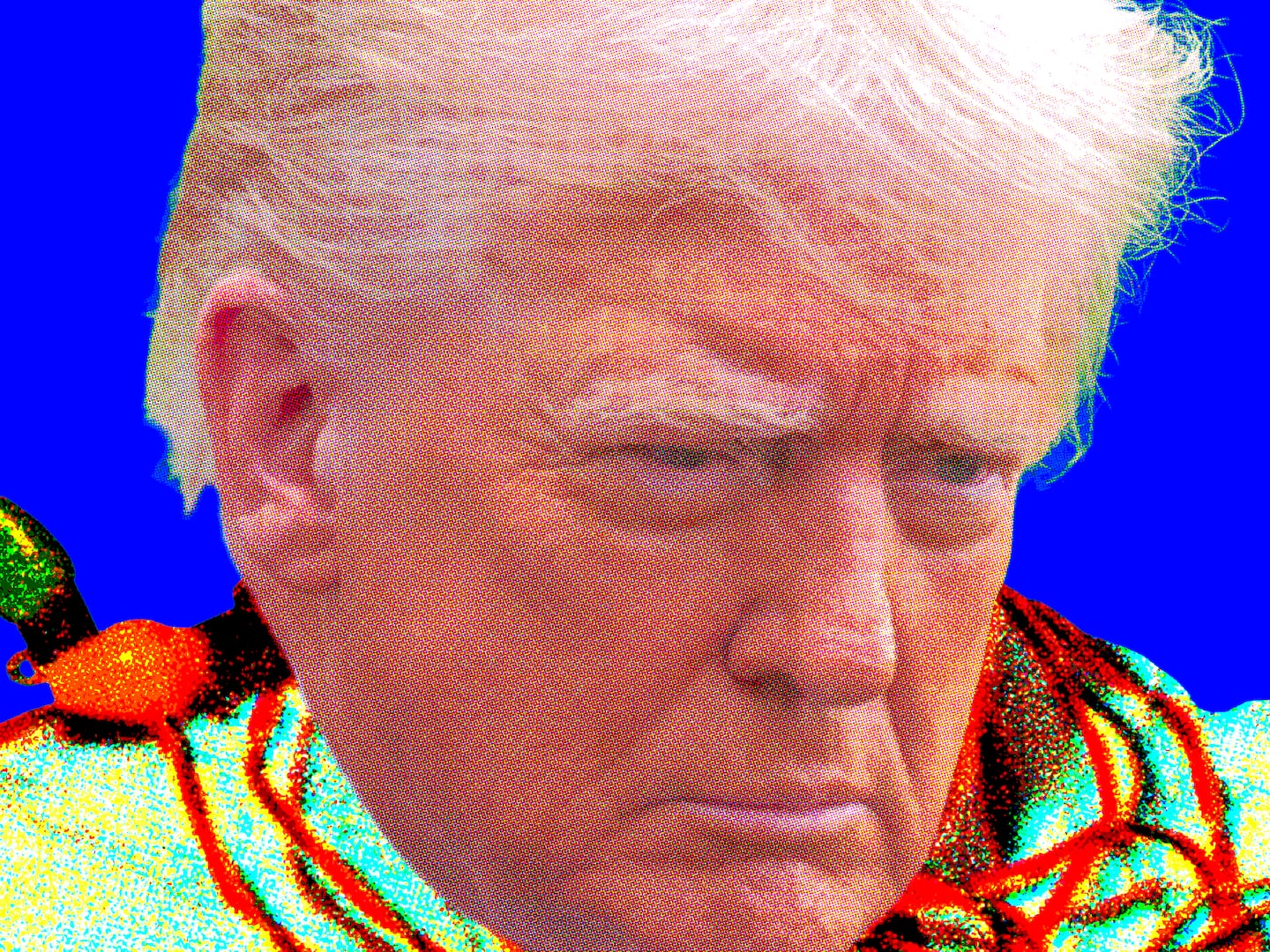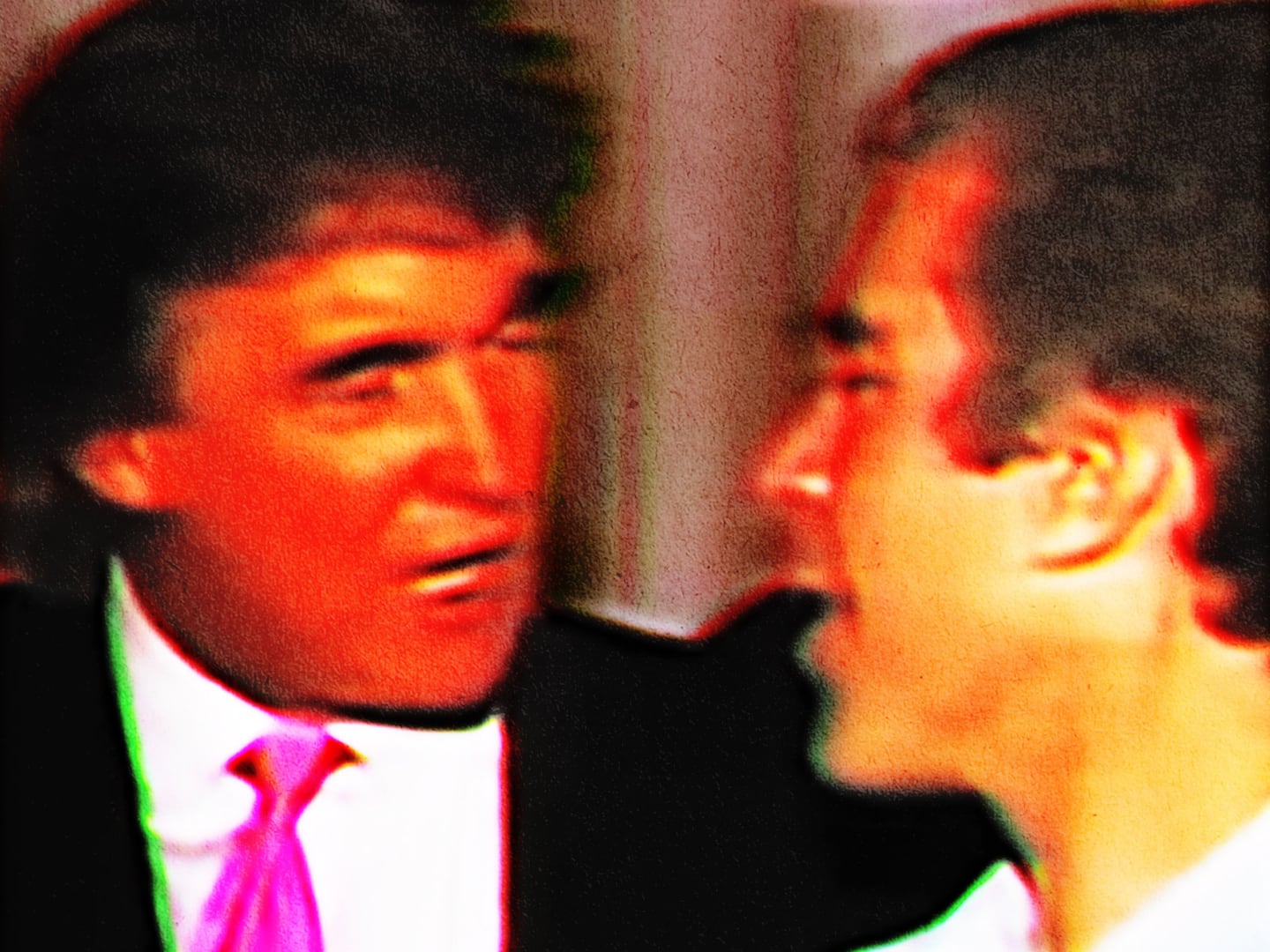It sounded almost like a conspiracy theory when Jeff Bezos not-so-subtly hinted that there might be a Saudi connection to the attempt to strong-arm him with his “below the belt selfies.”
But there’s mounting evidence that the de facto ruler of the kingdom has been trying to punish Bezos for the fierce coverage by his newspaper, The Washington Post, of the murder of Saudi journalist Jamal Khashoggi. This effort began months prior to the aggressive approach by the National Enquirer’s parent company.
Where’s the evidence? Well, it’s in plain sight.
Along with a team of independent Arab experts and activists around the world, I have been closely monitoring the actions of Saudi Crown Prince Mohammed bin Salman—commonly referred to as MBS—since his rise in 2015—and specifically, his well-oiled online propaganda machine.
Twitter’s Role in MBS’ Power Grab
There’s a lot one can learn about what the Saudi leadership is thinking if one pays close attention to the narratives pushed and promoted by the extensive Twitter networks under its control. In fact, at the time of his murder, my friend Jamal Khashoggi was working with us on a project to do exactly this—but the crown prince stopped him cold.
Twitter is huge in Saudi Arabia—the country boasts one of the world’s highest rates of Twitter penetration. Because Saudi Arabia lacks a free press, and bans political parties and NGOs, Saudi citizens took to Twitter as their only outlet to discuss public matters. By 2015, Twitter had become the premier hangout of Saudi intellectuals, a critical public sphere often called “The Parliament of the Arabs.”
This changed with the rise of MBS. Twitter’s immense popularity led the crown prince and his advisers to conquer Arabic-language Twitter, and turn it from a space of public debate among citizens into one of the kingdom’s primary tools of social control. Why? To prevent their biggest fear: Arab Spring-style dissent in Saudi Arabia.
By the end of 2018, MBS’ conquest of Twitter was complete: Prominent independent tweeters were in jail, in exile, compromised by blackmail, intimidated into silence—or dead. No longer was there such a thing as an independent voice within Saudi Arabia—you had to either stop being independent, stop having a voice, or stop being in Saudi Arabia.
Saudi Twitter is now presided over by a closely controlled network of pro-government accounts—political messages posted on it represent government-promoted narratives, not independent opinion. We have been tracking the government’s social-media program on our website; here is a small sample of how it works:
How MBS Unleashed His Electronic Army on Bezos
- Oct. 1: Digital security experts at Citizen Lab confirm the phone of Omar Abdulaziz, a Canada-based Saudi dissident who maintained close and daily contact with Jamal Khashoggi, was targeted using state-of-the-art cyberspying software. It is later revealed that digital communications between Abdulaziz and Khashoggi were being intercepted for several months ahead of this point.
- Oct. 2: Jamal Khashoggi is last seen entering the Saudi consulate in Istanbul. Soon, The Washington Post raises the alarm and demands answers from the Saudi government.
- Oct. 7: Turkey asserts that Khashoggi has been killed inside the Saudi consulate. The Post escalates its relentless coverage, demanding justice for Jamal.
- Oct. 15: A hashtag linking Jeff Bezos to the Post’s reporting appears on Saudi social media: “Boycott Amazon.” The first tweet with the hashtag proclaims: “To the people of the Great Kingdom of Saudi Arabia: The leftist Jeff Bezos is the owner of The Washington Post, the newspaper of evil and betrayal… we have to defend our country and boycott Amazon.”
- Nov. 2: The Washington Post publishes an op-ed by Turkish President Recep Tayyip Erdogan, whom the Saudi government accuses of “politicizing” Khashoggi’s murder.
- Nov. 3: A spike in anti-Bezos tweets begins in Saudi social media showing clear signs of government manipulation. In addition to “Boycott Amazon,” two additional hashtags are launched, one calling for the boycott of Souq.com, an Amazon-owned Middle Eastern e-commerce company. The initial tweet reads: “We as Saudis will never accept to be attacked by The Washington Post in the morning, only to buy products from Amazon and Souq.com by night! Strange that all three companies are owned by the same Jew [sic] who attacks us by day, and sells us products by night!”
- Nov. 4: Several news outlets notice the calls to boycott Amazon on Saudi social media—and at least one points to clear signs of manipulation.
- Nov. 5: The Washington Post publishes an op-ed titled “It’s time to halt business in Saudi Arabia.”
- Nov. 9: A prominent MBS surrogate revives calls to boycott Amazon and Souq.com, using a screengrab of the above op-ed to make his point. This is followed by another surge in anti-Bezos tweets.
- Nov. 9: The Washington Post publishes an op-ed by Mohammad Ali al-Houthi, a leader of the Houthis, the rebel group the Saudi-led coalition has been fighting in Yemen since 2015
- Nov. 10 - Nov. 19: Large and sustained spike in anti-Bezos tweets as three more hashtags are launched, including: “The owner of Amazon and Souq is attacking us” and “Bezos threatens us while Souq.com trades with us.”
This time the surge includes graphics, cartoons, and videos disparaging Bezos.
- A cartoon appears of Bezos seemingly running away from a shoe-throwing, insult-hurling Saudi citizen—the cartoonist made sure to depict Bezos holding a copy of The Washington Post, with an op-ed of the Houthi leader on its front page.
- Several videos appear describing Bezos’ relationship with the Post, and calling for a boycott. One video says Bezos is a “spiteful racist person against our country and trying to destabilize us.”
- A graphic with a picture of Bezos is captioned “This is the hateful filth,” and describes him as “spearheading the media attacks on Saudi Arabia, specialized in defaming our reputation in the world,” among other things.
- Another graphic, captioned “The Jew: Jeff Bezos,” links Bezos to The Washington Post, Amazon, and Souq.com (Note: Though Jeff Bezos isn’t Jewish, claiming public figures are Jewish in order to tie them to all sorts of nefarious activities is a well-known anti-Semitic trope.)
Anti-Bezos hashtags die down for a while after this point, until on Jan. 10 the National Enquirer publishes its special issue dedicated to revealing Bezos’ affair. MBS surrogates immediately engage in schadenfreude:
“Jeff Bezos has incited against Saudi Arabia and its leadership for weeks via his Washington Post, and now has been struck by a marital infidelity scandal that will cost him half his fortune in the divorce. In brief—whoever earns Saudi Arabia’s enmity will be broken, disparaged, and ended by God.”
Something tells me it wasn’t divine intervention.
Missing Link: The National Enquirer & the Saudis
You now know the Saudis have been active against Jeff Bezos and The Washington Post since October of last year, but that tells only half the story. Remember what Bezos wrote in his Medium post:
On our website, we have been looking into what is known about AMI’s connection to the Saudis, and I’ll share just a few quick examples here. First, some context: Ahead of these events, David Pecker’s company was $1.3 billion in debt, and losing more than $70 million per year. Since all these events, its finances have sharply and mysteriously improved.
- July 2017: David Pecker’s agent, Ari Emanuel, introduces Pecker to MBS intermediary Kacy Grine. Pecker takes Grine to the White House to meet with President Trump and Jared Kushner
- Sept. 2017: Pecker travels to Saudi Arabia and has a meeting with MBS and Grine
- Jan. 2018: Pecker seeks Saudi money to finance his dream purchase: Time magazine
- March 12, 2018: In advance of a high-profile MBS visit to the U.S., AMI prints and nationally distributes 200,000 copies of “The New Kingdom”—an expensive 97-page glossy containing no ads. Its sole topic is how MBS is changing the world for the better. At $13.50 per copy, it wasn’t a bestseller. AMI will later claim it received no money or other consideration from the Saudis for the magazine.
- March 19, 2018: Ari Emanuel receives a $400 million investment from the Saudi sovereign wealth fund. (Ari Emanuel used to be Donald Trump’s agent, too.) This is the same day MBS began a grand tour of the United States.
- March 24, 2018: A controversy erupts over who paid for the mystery magazine. While denying any prior knowledge, one Saudi diplomat says it was “not effective.” The senior spokesperson for the Saudi ambassador tweets: “Neither the embassy nor any other part of the government commissioned this and we don’t know who did. If you find out, we’d love to know.”
But of course, they did know, because the Saudi embassy had received an advance copy of the magazine weeks before publication. AMI had secretly sent an electronic copy of the magazine on Feb. 19. It was then circulated internally among Saudi officials, and even forwarded to their foreign-policy contacts in D.C.
Attention to this mystery magazine was—and remains—a big problem for David Pecker and AMI, because under the Foreign Agents Registration Act (FARA), any U.S. entity representing the interests of a foreign power must disclose its relationship with the foreign government. Examples include acting “at the order, request, or under the direction or control, of a foreign principal.”
So what could AMI do? Try to make a retroactive submission to the Department of Justice.
May 14, 2018: AMI writes the first of two letters to the DOJ’s National Security Division asking if publishing a magazine like the one it had already published would require it to register as a foreign agent. In the letters, it makes the hard-to-believe claim that publishing the magazine was “a business decision based on anticipated revenue.” It is forced to acknowledge that MBS intermediary Kacy Grine played a major role in creating the magazine, including that he “submitted an article… reviewed a working copy of the draft publication, suggested some changes, and provided additional images.”
The DOJ replied that AMI would not run afoul of the FARA Act if the facts described in its letters were true, correct, and complete. “If any of the facts with respect to activities undertaken… in this matter are different in any way from those depicted in your submission, please notify this office.”
We don’t know if AMI contacted the DOJ again on this matter, but we do know its finances improved significantly.
- June 15, 2018: Despite being heavily in debt, AMI announces it has made a new $80 million acquisition: 13 titles from its main competitor, Bauer Media.
- July 27, 2018: Reports indicate AMI is seeking to raise $425 million.
A King-Size Coincidence
AMI was about to find the kind of scandal about Bezos that its Saudi friends would kill for.
- Sept. 10, 2018: Michael Sanchez, a Hollywood manager with connections to some Trumpworld characters, tells “a political acquaintance” about a huge coincidence in his life. His sister Lauren is having an affair with none other than Jeff Bezos. (Michael Sanchez has since been identified by CNN, AP, Vanity Fair, The Washington Post, The Daily Beast, and even AMI as the person who provided Bezos’ personal texts to the National Enquirer.)
- Same day: AMI’s Dylan Howard commences work on the story about Bezos’ affair
- Sept. 20: David Pecker and his deputy, Dylan Howard, are granted a non-prosecution agreement by the U.S. Attorney in exchange for providing testimony against President Trump’s lawyer, Michael Cohen (related to the Enquirer’s “catch and kill” scheme)
Though AMI now had a huge tabloid scoop on its hands, it didn’t publish for another four months. It sat on the story, week after week, every day risking the loss of its exclusive. What was it waiting for? A final timeline may contain the answer.
- Jan. 7, 2019: AMI’s Dylan Howard finally sends a message advising Bezos that it has the story and will publish within three days
- Jan. 9: AMI announces that it has “successfully completed the refinancing of all outstanding debt.” Although the company was emphatic that no foreign investors were directly involved, AMI refused to name its white knights. It has not ruled out that the Saudis may have invested indirectly, as you’ll see below.
- Jan. 10: The National Enquirer publishes a special-edition midweek issue, an unprecedented 12-page story about Bezos’ affair. Although Bezos is known to most Americans as the world’s richest man and the founder of Amazon, on the magazine cover, beneath the photo of Bezos are the words “The Owner of The Washington Post”—the same way the Saudi Twitter campaigns had been describing him for months.
- Jan. 11: Bezos directs his security adviser Gavin de Becker to undertake an investigation to determine who provided his private texts to the Enquirer, and why. Bezos gave de Becker “whatever budget is needed to pursue the facts.”
- Jan. 31: De Becker tells The Daily Beast that “strong leads point to political motives.”
- Feb. 1: A letter is sent by AMI to the attorney for De Becker, stressing that the Enquirer’s reporting on Bezos “has not been instigated, dictated, or influenced in any manner by external forces, political or otherwise.” This is followed four days later by another letter warning De Becker to stop pursuing his investigation into AMI’s motives for publishing the story. It repeats: “Our reporting and news gathering on these matters has not been instigated, dictated or influenced in any manner by external forces, political or otherwise.”
“External forces, political or otherwise.” Their words, not mine. Was their concern merely that the investigation would reveal that the Bezos hit piece might have been done as a political favor to Trump? That wasn’t likely the worry, given that everybody already knows about the Trump-Enquirer relationship.
When all else fails
Finding that it couldn’t easily stop De Becker’s well-funded investigation, AMI began the strong-arm attempt that Bezos would soon publicly reveal. Its most senior content officer, Dylan Howard, sent Bezos’ attorney a salacious tabloid-style itemization of 10 intimate photos in its possession.
“It would give no editor pleasure to send this email. I hope common sense can prevail—and quickly.”
(Very early in the morning that same day, the Saudi government’s anti-Bezos hashtags that had been dormant for weeks suddenly show a strong spike of clearly manipulated activity.)
Bezos and De Becker both refused the Enquirer’s offer, Bezos rather famously.
Whatever AMI wanted from De Becker, it must have been worth the Enquirer giving up photos that might well have created its biggest-selling issue. Here is the actual statement it wanted De Becker to make in a public news release:
“We do not believe and have no basis for suggesting that the reporting undertaken by American Media and The National Enquirer was instigated, influenced, motivated, or dictated in any manner by external political forces, nor do we believe they utilized any form of electronic eavesdropping or hacking…”
While the Saudi government definitely possesses advanced hacking capabilities, nobody had ever reported anything about electronic eavesdropping in connection with the Bezos story at this point. For that matter, nobody other than AMI had ever used the phrase “external political forces.” And yet, those are the words it cared about so much that it was willing to give up its valuable photos, and willing to try to coerce the world’s richest man.
More ‘Investors’ Bail Out AMI
Weeks ago, David Pecker’s CFO told reporters at Bloomberg News that AMI has again been saved, this time by “several new investors that came into the fold.” Though he would not name the investors, he added:
“There is no direct investment in the company’s debt or equity by the Saudis.”
Rarely has the word “direct” caused a statement to be so indirect.
Meanwhile, the Saudis continue their smear campaign against Bezos. On Feb. 15, a verified pro-government account initiated a new hashtag, tweeting a close-up picture of Bezos, with a message to Saudis:
“He has a lot of hatred for your country, so how will you respond? Delete your account on Amazon.”
(We continue to track the Saudi media campaign, both on social media and traditional media, on our website.)
Conspiracy Theory or Conspiracy Facts?
Direct evidence of secret government actions and relationship is hard to come by. But here are some questions we can answer with confidence:
- Does AMI have a known history of doing political hit pieces? Yes.
- Does AMI have a close working relationship with the Saudis? Yes.
- Was AMI deeply in debt? Yes.
- Did AMI seek money from the Saudis? Yes.
- Did a company run by an associate of Pecker's receive money from the Saudis? Yes, lots of it.
- Was AMI concerned about FARA and FCPA violations? Yes.
- Did the Saudis wage a months-long government-manipulated social-media campaign against Bezos and The Washington Post? Yes.
- Was AMI’s David Pecker “apoplectic” over the paper’s investigation into Saudi connections? According to Bezos, Yes.
- Did AMI try very hard to stop the investigation? Yes.
Is this collection of facts no more than coincidence? Or is there something else at play? Time will tell.
UPDATE 5:27 PM: This story has been updated for clarity throughout.
Iyad El-Baghdadi is founder of the Kawaakibi Foundation and editor-in-chief of the Arab Tyrant Manual. He is based in Oslo, Norway, where he was granted political asylum in 2015.







